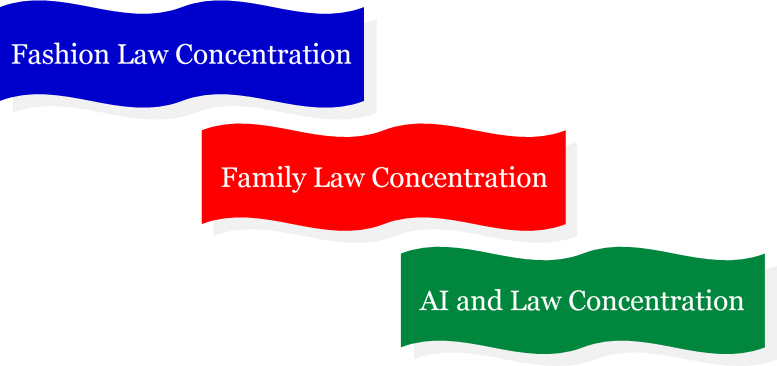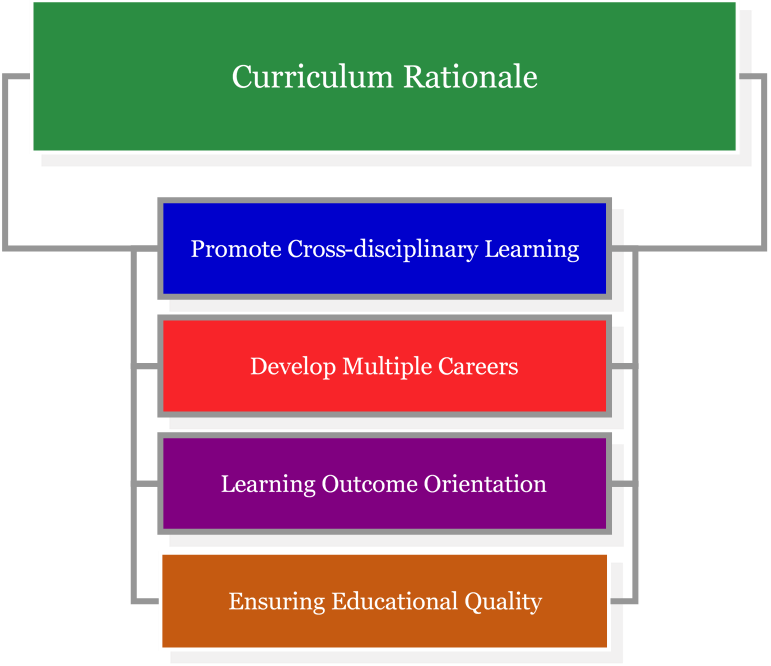Curriculum Rationale
1. Promote cross-disciplinary learning and develop multiple careers
It is our main goal in Shih Chien University Department of Law to provide courses for cross-disciplinary learning in order to cultivate cross-disciplinary legal talents. The department will also incorporate the concept of "curriculum modularization" proposed by domestic and foreign curriculum innovations in recent years. The specific methods include rearranging many traditional and emerging law learning contents into module courses (such as: core courses, professional selective courses, cross-disciplinary elective courses) according to the theme.
The Shih Chien University is most famous of its extinguish education in the field of home economics, fashion and design, and information technology and management. Combining those precious characters of the university, we offer the following three concentrations for expertise selection.

Figure of Concentrations
2. Learning Outcome Orientation, Ensuring Educational Quality
The Department is based on the concept of "spiral curriculum" proposed by the American psychologist Jerome S. Bruner in 1963. A set of curriculum design with a logical sequence is constructed, so that students can learn step by step and gradually improve the basic student-based learning outcomes and professional legal ability, obtain relevant professional certificates, and finally meet the needs of the future workplace.
In Shih Chien University Law Department, we emphasis problem-based learning, as that, various legal case studies courses will be provided, such as Constitutional Case Studies, Criminal Law Case Studies, Administrative Law Case Studies, etc., in order to strengthen the link between learning and practicing.
Furthermore, in order to improve students’ English proficiency, the department will not only set the graduation threshold for English proficiency, but will also offer EMI courses, such as: Introduction to Anglo-American Law, Legal English and other courses to enhance students' learning ability in global level.
Finally, the construction of capstone courses with the spirit of integration, conclusion and reflection will be adopted, such as: Capstone: Public Law, Capstone: Civil Law, Capstone: Criminal Law, Capstone: Commercial Law. Additional legal courses such as internships and social services will allow students to integrate and deepen what they have learned in the university, so as to shorten the gap between learning and application, and also integrate the effect of the university's social responsibility.

Figure of Curriculum Rationale






